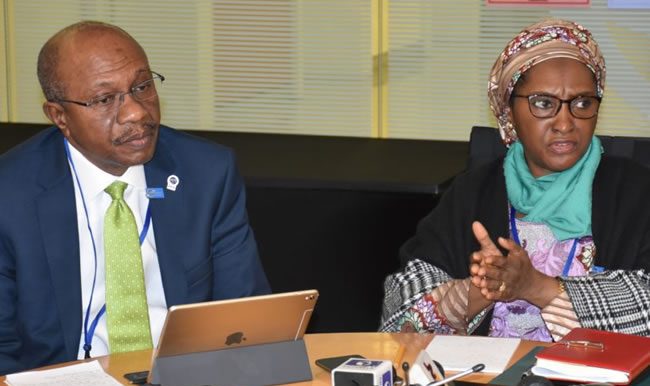The Central Bank of Nigeria (CBN), has explained that its decision to go ahead with naira redesigning without first informing the Minister of Finance, Zainab Ahmed, was because the move was 12 years due.
Ahmed, on Friday, October 28, 2022, had disowned the move by the Apex bank to redesign the N200, N500, and N1,000 notes of the Nigerian currency, saying she was not informed.
The minister, who commented on the policy in response to a question raised by Senator Opeyemi Bamidele, during the 2023 budget defence session, therefore, warned CBN of consequences that may arise from it.
Her words: “To me, the policy may be a well-conceived one, but the timing going by realities on the ground, is very wrong as the Naira may fall to as low as N1,000 to a US dollar before January 31, 2023, fixed for full implementation of the policy.
“Distinguished senators, we were not consulted at the Ministry of Finance by CBN on the planned Naira redesigning and cannot comment on it as regards merits or otherwise.
“However as a Nigerian privileged to be at the top of Nigeria’s fiscal management, the policy as rolled out at this time portends serious consequences on the value of Naira to other foreign currencies.
“I will however appeal to this committee to invite the CBN governor for required explanations as regards merits of the planned policy and rightness or otherwise of its implementation now.”
In an apparent response to her, CBN spokesman Osita Nwanisobi said the redesigning of the three series of the naira “followed the law and due process to carry out the exercise.”
According to Nwanisobi, the management of the CBN, in line with provisions of section 2(b), section 18(a), and section 19(a)(b) of the CBN Act 2007, had duly sought and obtained the approval of President Muhammadu Buhari in writing to redesign, produce, release and circulate new series of N200, N500, and N1,000 banknotes.













